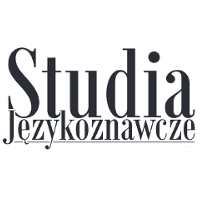





| Authors: |
Dorota
Orsson

Uniwersytet Szczeciński, Szczecin |
| Keywords: | technical foreign language instruction cross-border cultural education cross-border medical rescue service technical language |
| Data publikacji całości: | 2021 |
| Page range: | 10 (105-114) |
| 1. | Aalto, Nancy, Ewald Reuter. Aspects of intercultural dialogue. Köln: Saxa Verlag, 2006. |
| 2. | Barmeyer, Christoph, Petia Genkova, Jörg Scheffer. Interkulturelle Kommunikation und Kulturwissenschaft. Passau: Verlag Karl Stutz, 2011. |
| 3. | Bodziany, Marek. Komunikacja międzykulturowa w wielonarodowych jednostkach wojskowych. Wrocław: Wydawnictwo Uczelniane Wyższej Szkoły Oficerskiej Wojsk Lądowych imienia generała Tadeusza Kościuszki 2013. |
| 4. | Bolten, Jürgen, Claus Ehrhardt. Interkulturelle Kommunikation. Sternenfels: Wissenschaft & Praxis, 2003. |
| 5. | Hiller, Gundula Gwenn. „Schlüsselqualifikation Interkulturelle Kompetenz – ein Bildungsauftrag der deutschen Hochschulen?”. W: Perspektiven interkultureller Kompetenz, red. Wilfried Dreyer, Ulrich Hößler, 238–254. Göttingen: Vandenhoeck & Ruprecht, 2011. |
| 6. | Houben, Ghislain, Lenie Kwan, Koen Vanhoof. “A knowledge-based SWOT-analysis system as an instrument for strategic planning in small and medium sized enterprises”. W: Decision support systems 26. Department of Applied Economics, Limburg University, Universitaire Campus, Diepenbeek, Belgium, 1999, 125–135. Dostęp 24.08.2019. http://intra.tesaf.unipd.it/pettenella/Corsi/ReaserchMethodology/Documents/SWOT_Analysis_Houben_et_al.pdf. |
| 7. | Łada, Agnieszka. „Wspólny kierunek, różne perspektywy. Polskie i niemieckie spojrzenia na wzajemne relacje oraz porządek światowy”. W: Barometr Polska–Niemcy 2019. Badanie opinii publicznej Instytutu Spraw Publicznych (ISP), Fundacji Konrada Adenauera (KAS) i Fundacji Współpracy Polsko-Niemieckiej. Warszawa: Ośrodek Wydawniczo-Poligraficzny SIM, 2019. Dostęp 24.08.2019. http://fwpn.org.pl/assets/Aktualnosci/2019/2019_05_28_Barometr2019/wspolny-kierunek-rozneperspektywy-polskie-i-niemieckie-spojrzenia-na-wzajemne-relacje-oraz-porzadek-swiatowybarometr-polska-niemcy-2019_pl_1559211115.pdf. |
| 8. | Reynolds, Sana, Valentine Deborah. Komunikacja międzykulturowa. Warszawa: Wolters Kluwer Polska, 2009. |
| 9. | Straub, Jürgen, Arne Weidemann, Doris Weidemann. Handbuch interkulturelle Kommunikation und Kompetenz. Stuttgart: Metzler, 2007. |